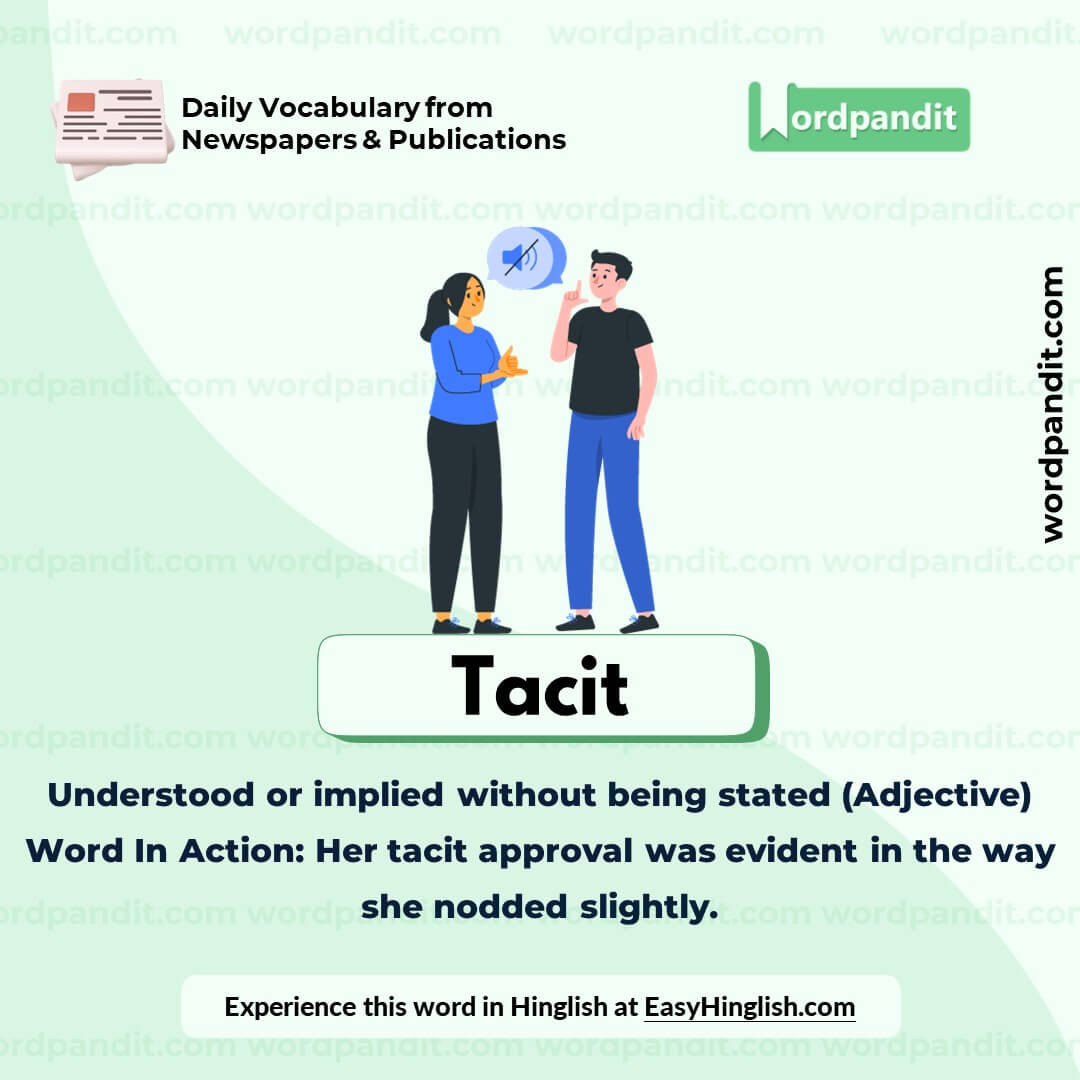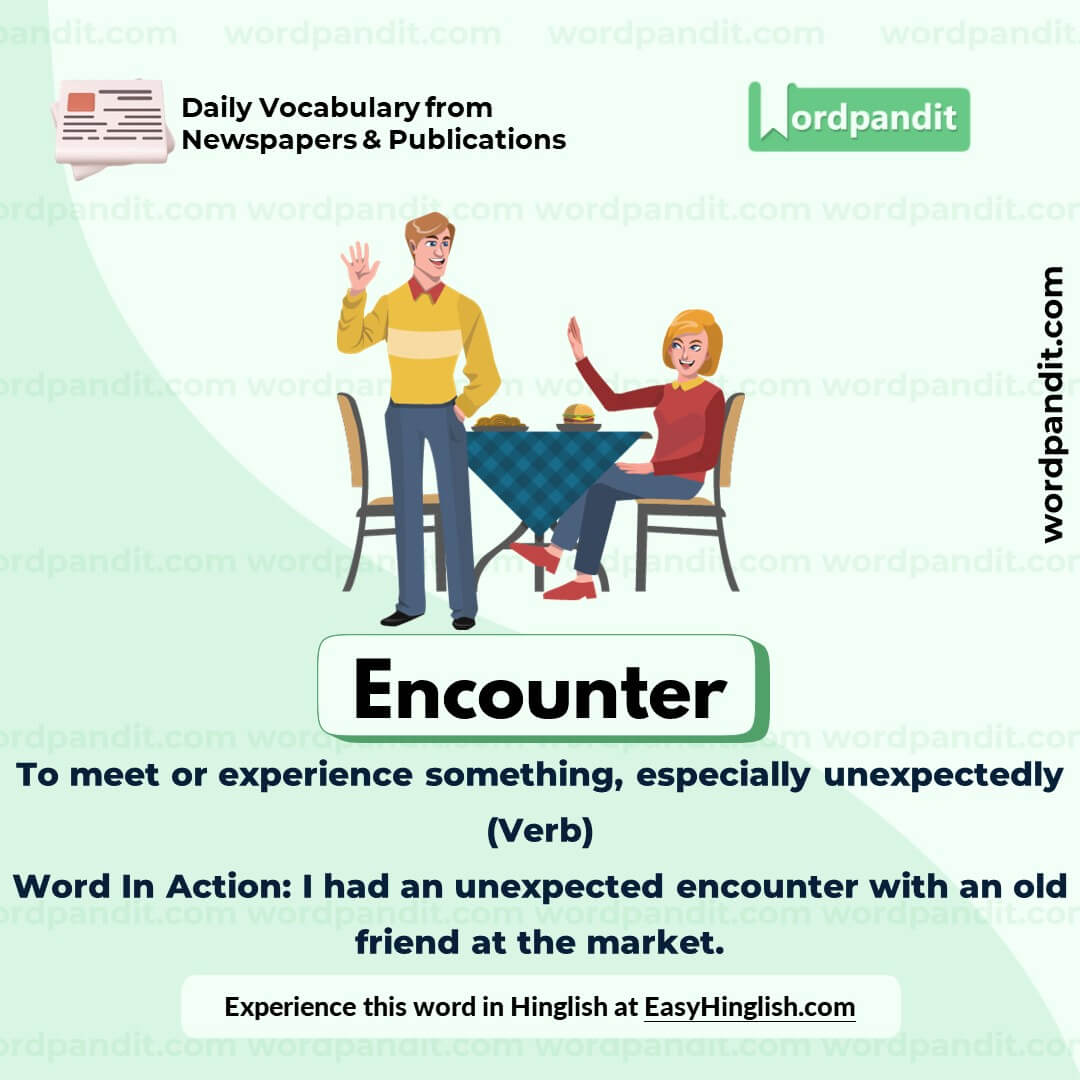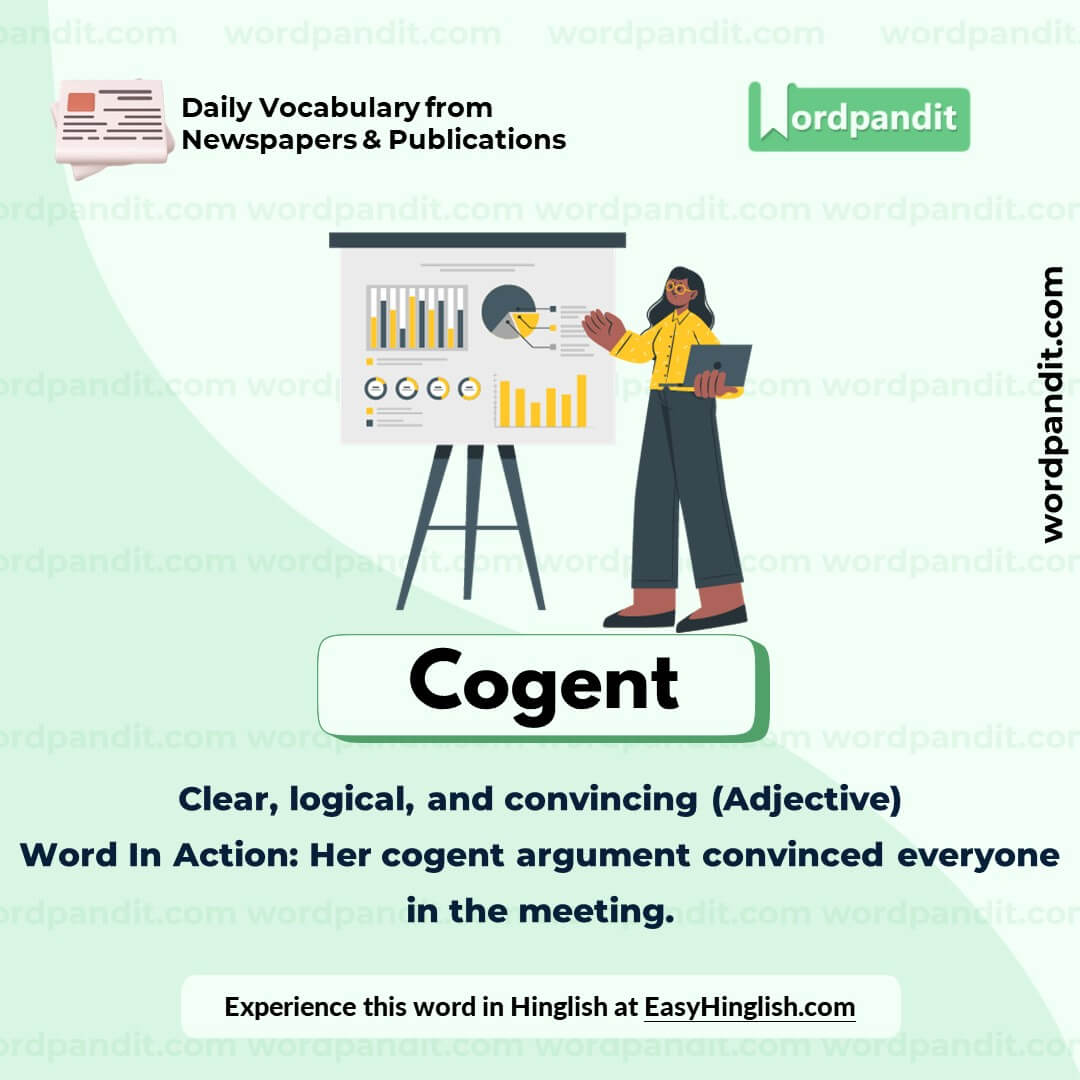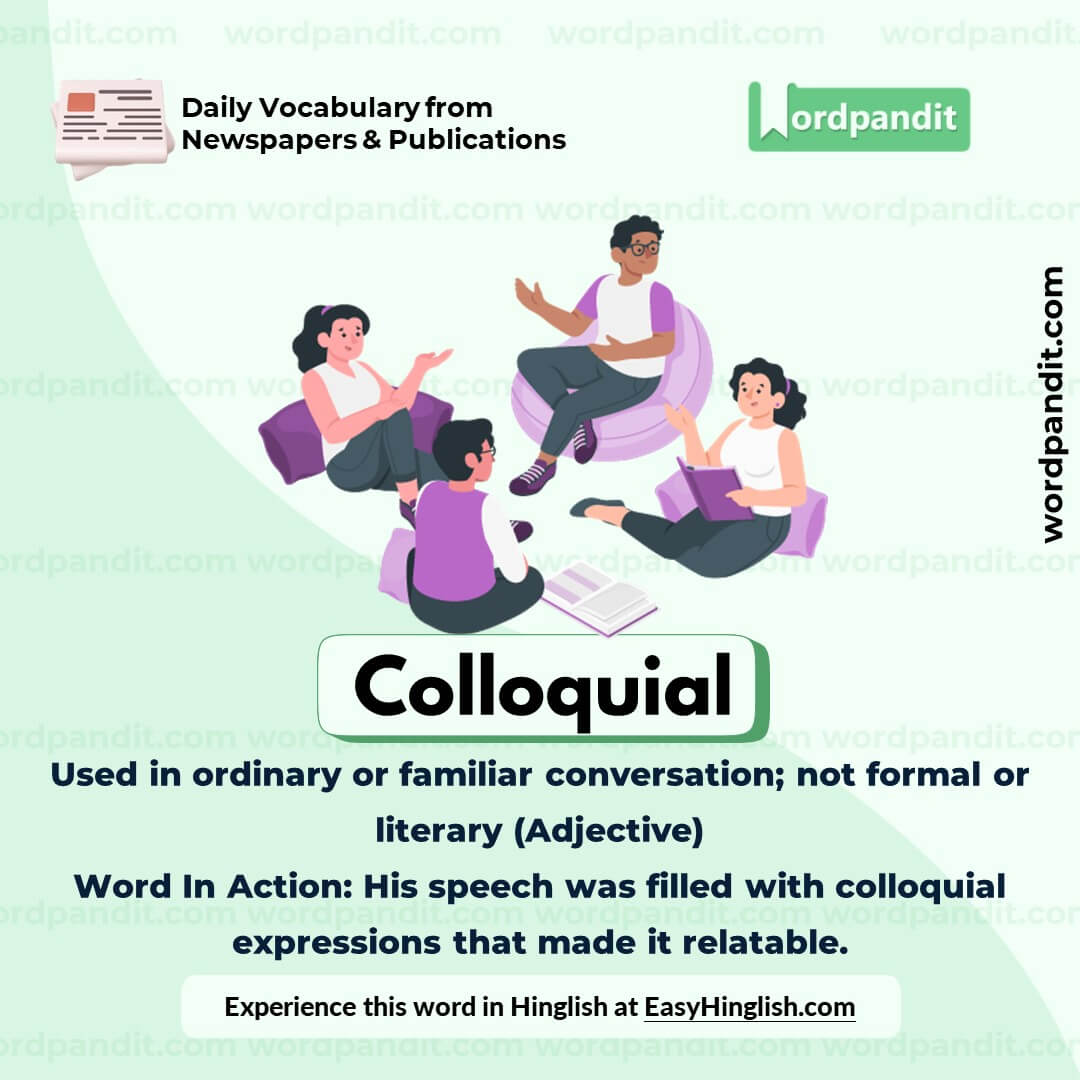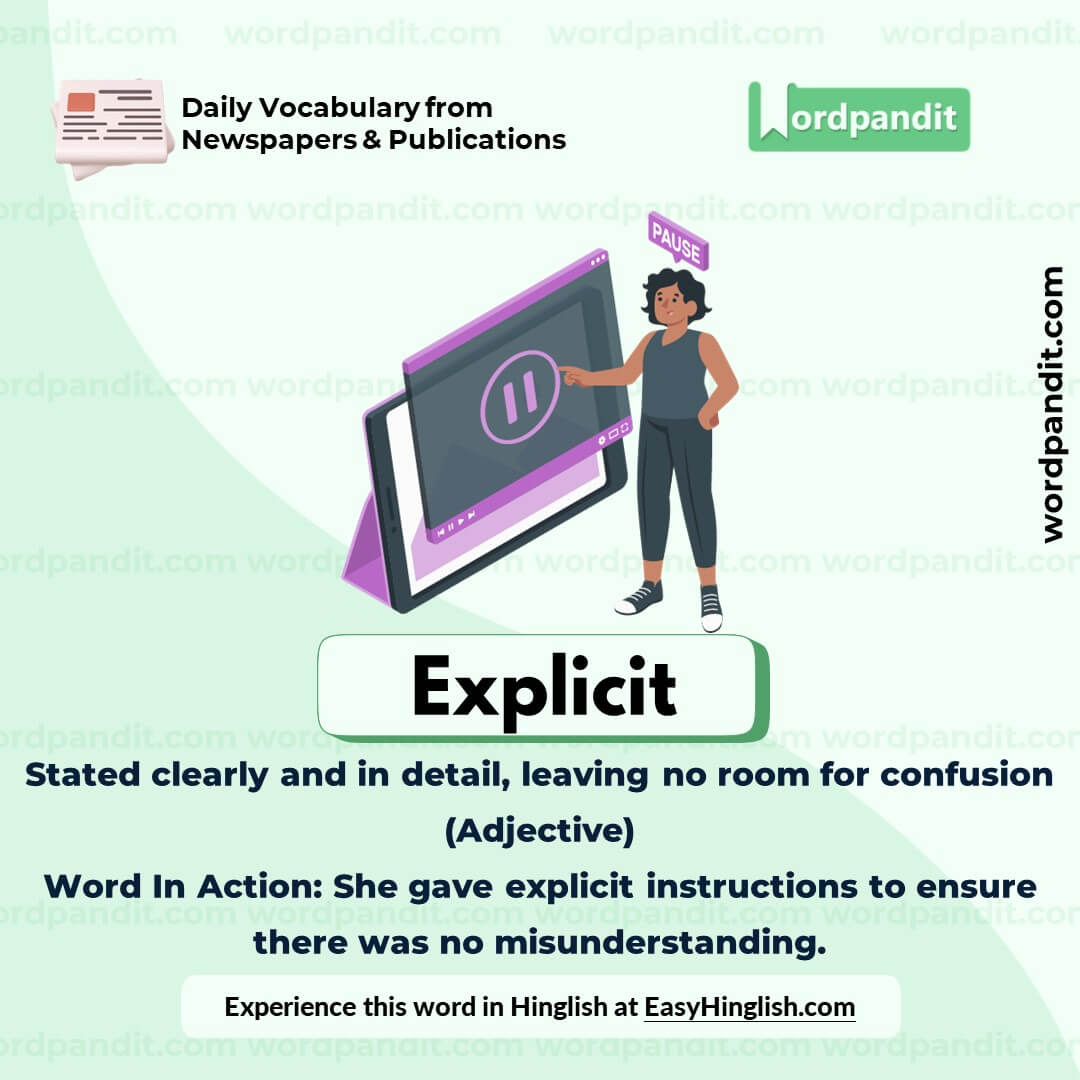Daily Vocabulary from International Newspapers and Publications
Expand Your Vocabulary with Wordpandit’s Global Vocabulary Hub
At Wordpandit, we are committed to helping you develop a truly global vocabulary by drawing from some of the most respected international publications. This section is designed to keep you ahead of the curve by introducing you to words that define global conversations and trends.
The Power of Global Sources
To help you think and communicate on a global scale, we curate vocabulary from renowned international sources, such as:
- The New York Times
- The Washington Post
- BBC
- The Guardian
- The Economist
- Scientific American
- Psychology Today
- And many more...
Stay Global, Stay Competitive
Our daily updates from international publications ensure you are consistently exposed to new words that reflect global news and developments, making sure your vocabulary is not only current but also globally relevant.
Enhance Your Global Perspective
Whether you’re preparing for international exams, aiming to excel in global business communication, or want to enhance your language skills for personal growth, Wordpandit offers the resources you need to thrive in a global context.
Effective Learning, Global Reach
Our learning methodology combines global examples, memory aids, and interactive activities, allowing you to internalize new words effectively and apply them in real-world scenarios.
Begin Your Global Vocabulary Journey Now!
Why Choose Wordpandit?
Practical Learning: Focus on words you'll actually encounter in real-world reading, enhancing your comprehension and communication skills.
Diverse Content: From current affairs to scientific breakthroughs, our varied sources expose you to vocabulary across multiple domains.
Effortless Integration: Make Wordpandit a part of your daily routine. Just a few minutes each day can significantly boost your lexicon over time.
Your Path to Vocabulary Mastery
- Visit our Daily Vocabulary section regularly
- Explore new words and their usage in context
- Practice incorporating these words into your own writing and speech
- Track your progress as your vocabulary expands
Start Your Journey Today
Embark on your vocabulary enhancement journey with Wordpandit. By consistently engaging with our daily posts, you'll build a robust vocabulary that serves you well in academic, professional, and personal contexts.
Remember, a word a day keeps linguistic limitations at bay. Make Wordpandit your daily companion in the quest for vocabulary excellence!
WORD-1: Tacit
Context:
"That looks like I offered an argument, even though I only gave you one premise and never explicitly stated a conclusion. In this case, the tacit conclusion might be," - 1000 Word Philosophy
Explanatory Paragraph:
The word "tacit" refers to something understood or implied without being explicitly stated. It describes ideas, agreements, or understandings that exist without needing to be spoken aloud or written. In the context of the sentence, "tacit conclusion" means an unstated but assumed conclusion based on the given premise.
Meaning: Understood or implied without being stated (Adjective).
Pronunciation: TAS-it.
Difficulty Level: ⭐⭐ Intermediate.
Etymology: Derived from Latin "tacitus," meaning silent or unspoken.
Synonyms & Antonyms:
Synonyms: Implicit, unspoken, understood, implied.
Antonyms: Explicit, stated, declared, overt.
Usage Examples:
- The group's silence was taken as tacit approval of the plan.
- He offered a tacit acknowledgment of his mistake by quickly changing the subject.
- The neighbors had a tacit agreement not to park in each other's driveways.
- The lawyer argued that there was no tacit consent for the changes made to the contract.
Cultural Reference:
"In diplomacy, tacit agreements are often more powerful than formal treaties, as they rely on mutual trust and understanding rather than legal obligations." - Historical Insight
Think About It:
Can tacit agreements be as binding as formal ones? Why or why not?
Quick Activity:
Think of a time when you reached a tacit understanding with someone. Write a brief paragraph describing the situation and how the understanding was conveyed without words.
Memory Tip:
Think of "tacit" as related to "taciturn," which means someone who is silent. Both involve the idea of not speaking or expressing things openly.
Real-World Application:
In professional settings, tacit consent is often given in meetings or negotiations when participants agree through actions or silence rather than verbal affirmations. Understanding these cues can be crucial in business communication.
WORD-2: Encounter
Context:
"Arguments are sets of statements or reasons ('premises') that are offered to try to support some other statement (a 'conclusion'). People make and encounter arguments every day, about all sorts of issues." - 1000 Word Philosophy
Explanatory Paragraph:
The word "encounter" refers to meeting or experiencing something, often unexpectedly. It can describe a physical meeting between people, a confrontation, or an experience with ideas, situations, or challenges. In the context of the sentence, "encounter" means to come across or engage with arguments in daily life.
Meaning: To meet or experience something, especially unexpectedly (Verb).
Pronunciation: en-KOWN-ter.
Difficulty Level: ⭐ Beginner.
Etymology: From Old French "encontrer," meaning to meet or confront, derived from Latin "in-" (into) + "contra" (against).
Synonyms & Antonyms:
Synonyms: Meet, face, experience, confront.
Antonyms: Avoid, evade, ignore, miss.
Usage Examples:
- During her trip, she encountered a group of travelers who shared their fascinating stories.
- The hikers encountered a bear on the trail and had to act cautiously.
- Students often encounter challenging questions during exams.
- He unexpectedly encountered an old friend at the coffee shop.
Cultural Reference:
"Close Encounters of the Third Kind," a classic 1977 science fiction film, explores humanity's encounters with extraterrestrial life, highlighting the theme of unexpected and transformative meetings.
Think About It:
How do unexpected encounters shape your perspectives or decisions in life?
Quick Activity:
Write a short paragraph describing a memorable encounter you’ve had, whether with a person, place, or idea, and how it impacted you.
Memory Tip:
Think of the phrase "unexpected encounter" to remember that "encounter" often involves meeting or experiencing something by chance.
Real-World Application:
In customer service, employees frequently encounter a variety of situations, requiring them to adapt and resolve challenges effectively. Developing skills to handle such encounters is essential for success.
WORD-3: Cogent
Context:
"When an argument is strong and its premises are true, the argument is cogent." - 1000 Word Philosophy
Explanatory Paragraph:
The word "cogent" refers to an argument or reasoning that is logical, persuasive, and well-founded. It conveys a sense of being clear, convincing, and directly addressing the matter at hand. A cogent argument not only appeals to logic but also ensures its premises are valid and lead to a compelling conclusion.
Meaning: Clear, logical, and convincing (Adjective)
Pronunciation: KO-jent
Difficulty Level: ⭐⭐⭐ Intermediate
Etymology: Derived from Latin "cogere," meaning "to drive together, to compel."
Synonyms & Antonyms:
Synonyms: Convincing, compelling, persuasive, logical
Antonyms: Unconvincing, weak, illogical, flimsy
Usage Examples:
- The lawyer's cogent argument left the jury with little doubt about the defendant's innocence.
- During the debate, her points were so cogent that the audience began to change their perspective.
- A cogent explanation can often turn a complex topic into something easily understood.
- The scientist presented cogent evidence to support his groundbreaking theory.
Cultural Reference:
"Cogent arguments are the cornerstone of effective communication in philosophical and legal discourse." - Reflecting on Socratic Dialogues
Think About It:
Can you think of a situation where a cogent argument changed your mind about something significant?
Quick Activity:
Write a short paragraph about a topic of your choice. Ensure your reasoning is cogent and your premises are supported by evidence.
Memory Tip:
Think of "co-" in cogent as "coherent" and "gent" as "gentle persuasion." A cogent argument is both coherent and gently persuasive.
Real-World Application:
In professional environments, a cogent argument is vital when proposing solutions or presenting business cases to stakeholders.
WORD-4: Colloquial
Context:
"Colloquially, we also simply 'argue' with each other when we disagree with each other, or even yell at each other. But in philosophy, 'arguments' are those sets of statements presented to try to convince someone of something." - 1000 Word Philosophy
Explanatory Paragraph:
The term "colloquial" refers to informal language or expressions that are used in everyday conversation rather than in formal speech or writing. It highlights the casual and familiar tone of communication often seen in casual interactions. In the context provided, "colloquially" means the way the term "argue" is commonly used in everyday, informal discussions.
Meaning: Used in ordinary or familiar conversation; not formal or literary (Adjective).
Pronunciation: kuh-LOH-kwee-uhl.
Difficulty Level: ⭐⭐⭐ Intermediate.
Etymology: Derived from Latin "colloquium," meaning conversation or dialogue, from "com-" (together) + "loqui" (to speak).
Synonyms & Antonyms:
Synonyms: Informal, conversational, everyday, vernacular.
Antonyms: Formal, literary, academic, standard.
Usage Examples:
- His speech was full of colloquial expressions that made him relatable to the audience.
- The teacher encouraged the students to avoid colloquial language in their essays.
- Colloquial phrases like "gonna" and "wanna" are commonly used in casual English conversations.
- The book's colloquial tone makes it an enjoyable read for a wide audience.
Cultural Reference:
"Mark Twain's writing, such as in 'The Adventures of Huckleberry Finn,' is known for its use of colloquial language, capturing the authentic speech of people in the American South during his time." - Literary History
Think About It:
Why do you think colloquial language evolves over time, and how does it reflect societal changes?
Quick Activity:
Make a list of five colloquial phrases or words you commonly use in your daily conversations. Try to rewrite them in formal language.
Memory Tip:
Remember "colloquial" by associating it with "colleague"—you use casual language when talking with colleagues or friends.
Real-World Application:
Understanding colloquial language is essential for effective communication in informal settings and helps in building rapport, especially in multicultural and multilingual environments.
WORD-5: Explicit
Context:
"Strictly speaking, an argument as presented might not contain an explicitly stated conclusion at all. For example, I might approach you and say" - 1000 Word Philosophy
Explanatory Paragraph:
The word "explicit" refers to something that is stated clearly and in detail, leaving no room for confusion or doubt. Unlike implicit ideas, which are understood indirectly, explicit statements are directly expressed. In the context of the sentence, "explicitly stated" means the conclusion is clearly articulated and not implied.
Meaning: Stated clearly and in detail, leaving no room for confusion (Adjective).
Pronunciation: eks-PLIH-sit.
Difficulty Level: ⭐ Intermediate.
Etymology: Derived from Latin "explicitus," meaning unfolded or set forth, from "ex-" (out) + "plicare" (to fold).
Synonyms & Antonyms:
Synonyms: Clear, direct, precise, specific.
Antonyms: Implicit, vague, ambiguous, unclear.
Usage Examples:
- The teacher gave explicit instructions on how to complete the assignment.
- She made it explicit that she would not tolerate any kind of disrespect in her classroom.
- The terms and conditions were written in explicit detail to avoid any misunderstandings.
- During the meeting, he explicitly stated his concerns about the project timeline.
Cultural Reference:
"Explicit content" warnings on music albums, movies, or other media are used to indicate material that contains clear depictions of adult themes or language. This practice gained widespread recognition in the 1980s with the rise of parental advisory labels.
Think About It:
Why is it sometimes more effective to make something explicit rather than leaving it implied?
Quick Activity:
Write an explicit statement about your favorite hobby. Ensure that it leaves no room for misinterpretation.
Memory Tip:
Think of "explicit" as "explaining clearly"—both start with "ex" and focus on clarity.
Real-World Application:
In contracts and agreements, being explicit is essential to prevent legal disputes and ensure all parties have a clear understanding of the terms and conditions.


